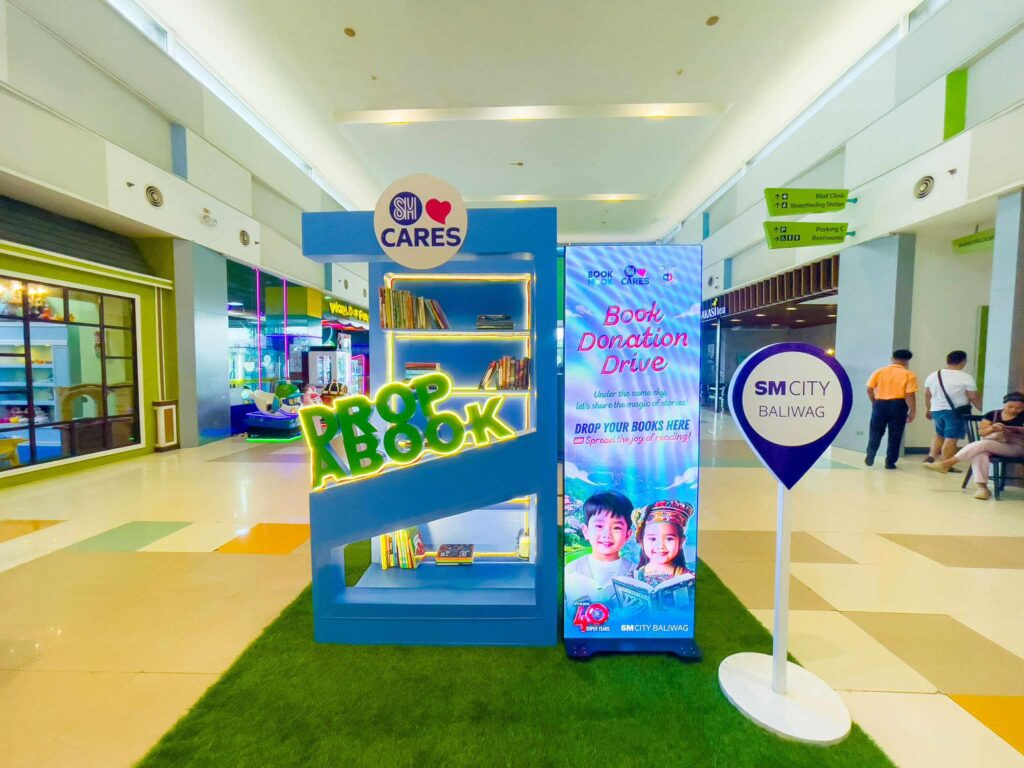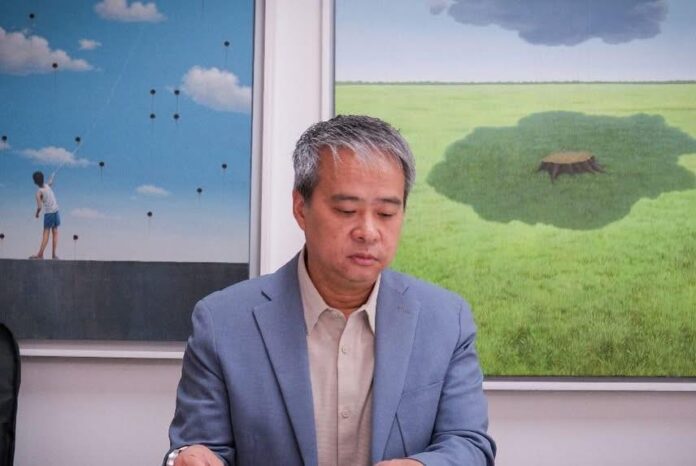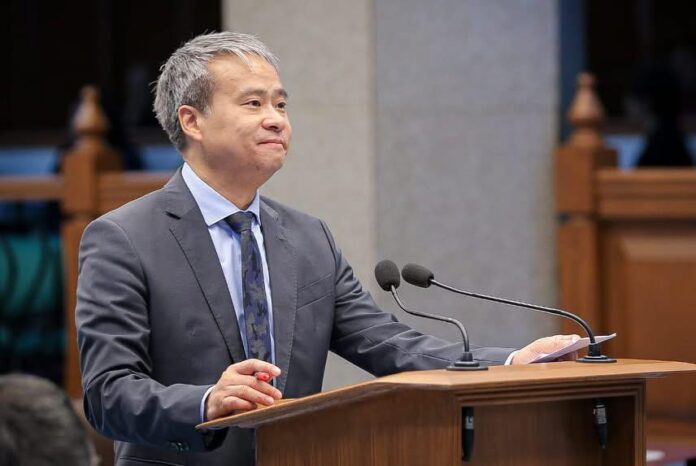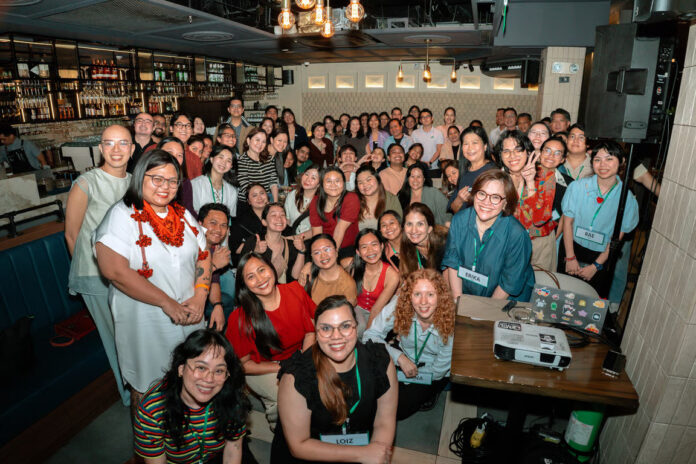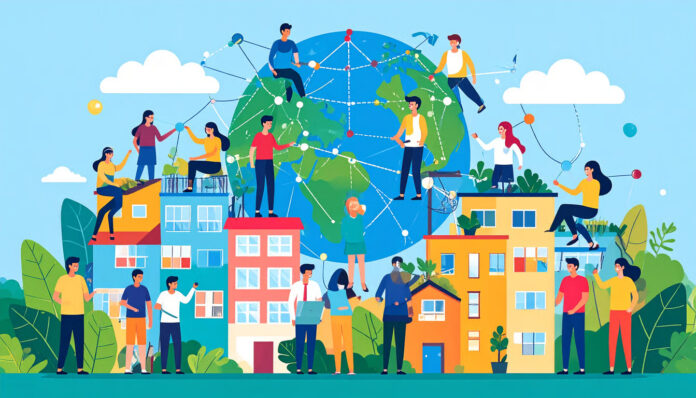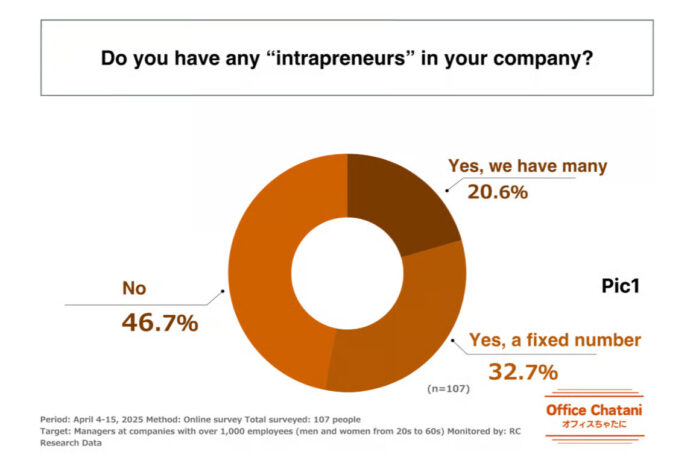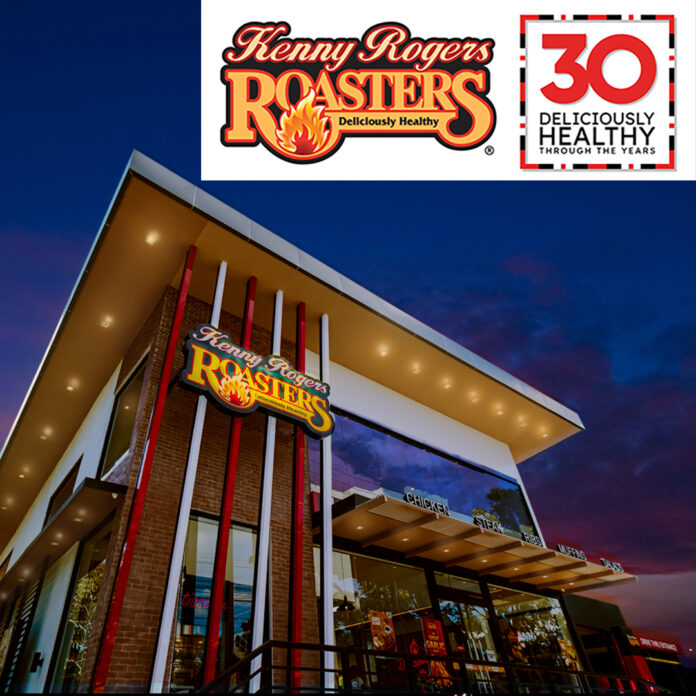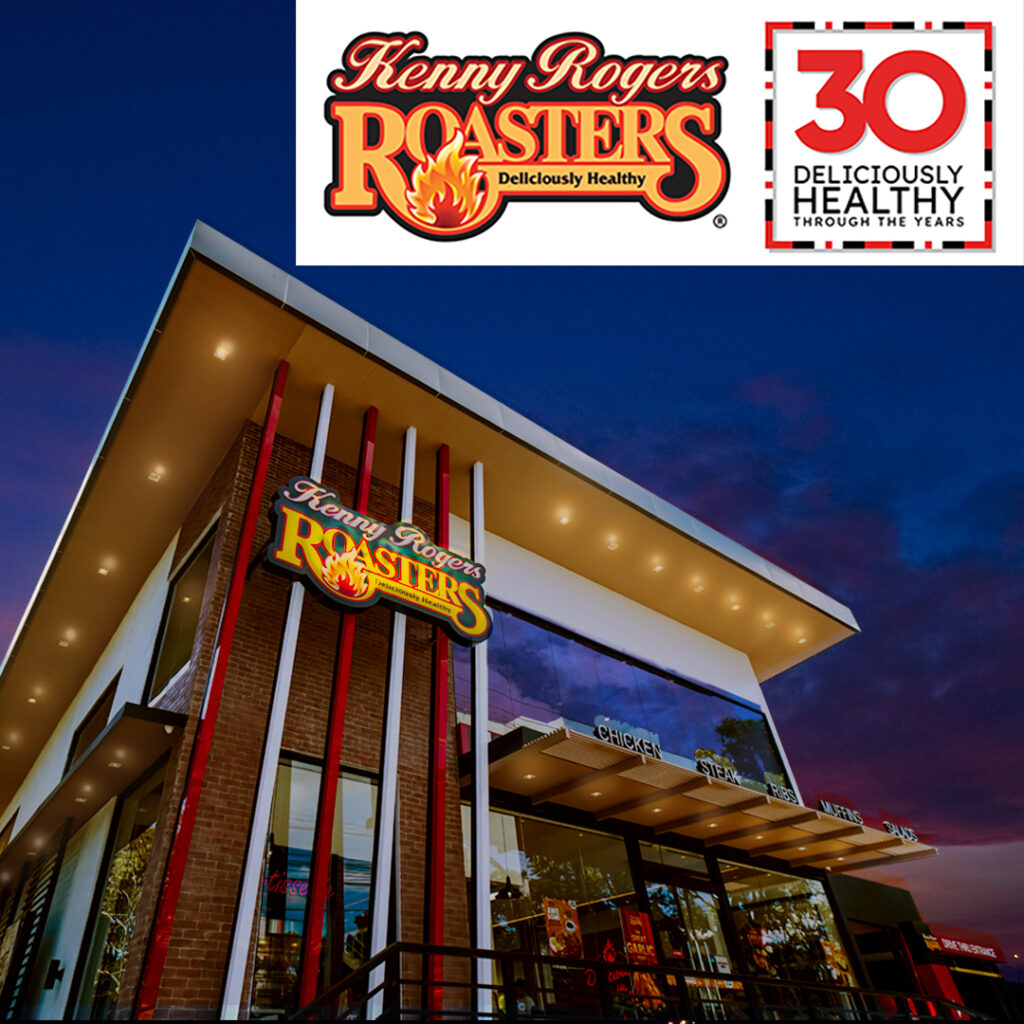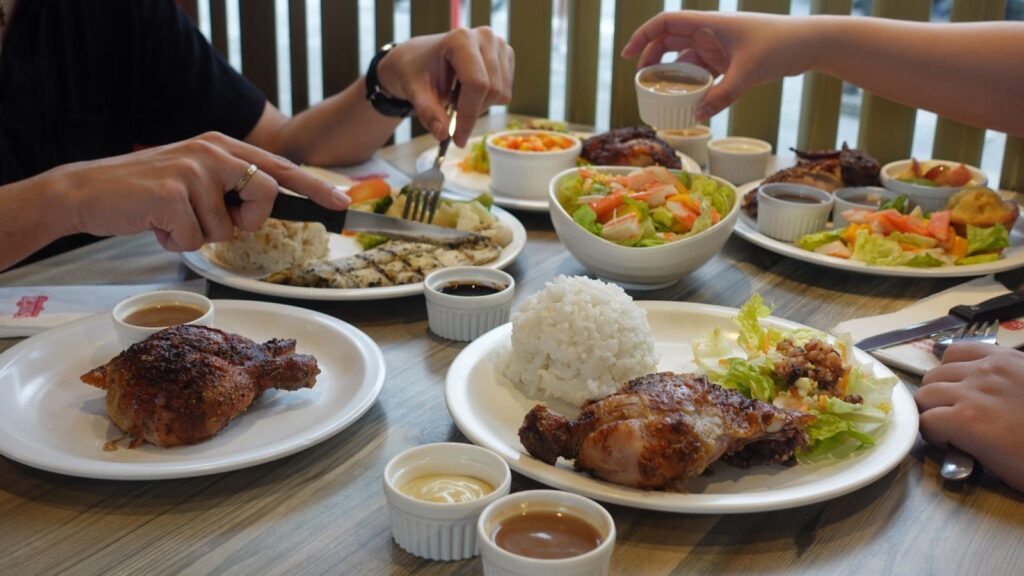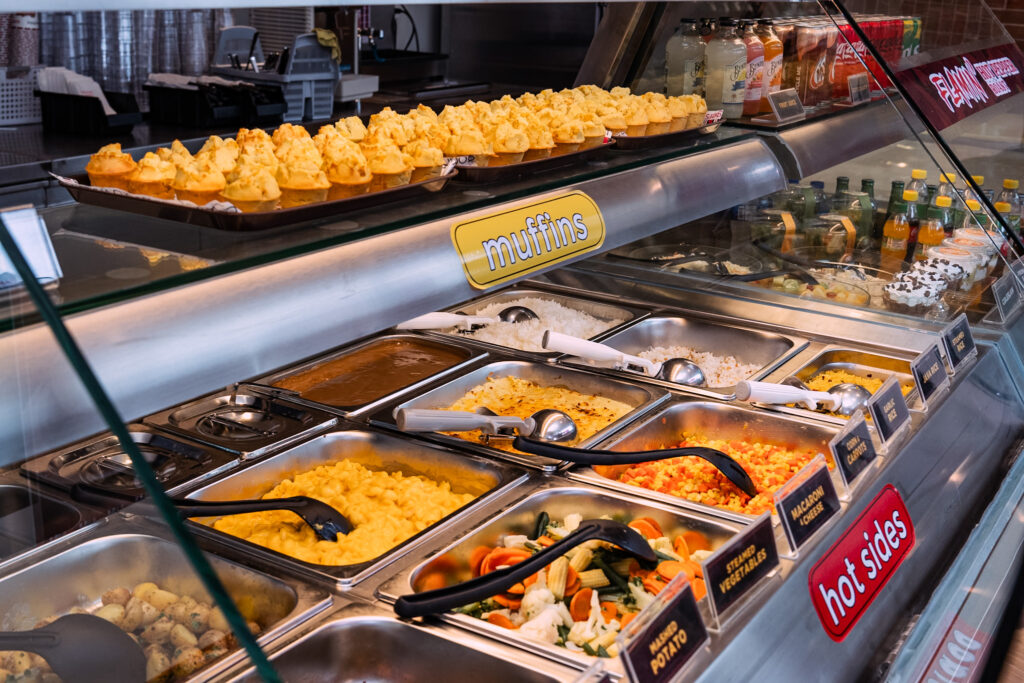On July 2 at Shangri-La Plaza, changemakers gathered for Impact Happy Hours, a community event co-hosted by Villgro Philippines, xchange, and Ashoka Philippines. The evening featured the Good Start Challenge, which will support and fund bold ideas improving parental and caregiver wellbeing. Social entrepreneurs shared local solutions from human milk banks to digital mom communities. Applications for the challenge are open until September 17, with funding of up to €200,000. Learn more at goodstart.challenges.org.
Changemakers from various backgrounds and sectors gathered at Impact Happy Hours last July 2, at Refinery, Shangri-La Plaza Mall. The event has been running since 2017 and has been a community space for individuals and organizations interested in social impact to connect and collaborate. Impact Happy Hours’ main organizers are entrepreneur support organizations Villgro Philippines, xchange, and Ashoka Philippines, but the event has also been co-hosted with different partner organizations who have designed several ways to facilitate connections between attendees. The featured partner of last night’s event was the Good Start Challenge.
Attendees of Impact Happy Hours were invited to reflect on modern parenting, wellbeing, and caregiving within the family. “How difficult is it to get on a crowded city bus with a baby—and how many other challenges do parents face in daily life? We need to ask: can we redesign systems, services, and infrastructures for the wellbeing of parents and caregivers?” said Kathy Nothstine from Challenge Works, one of the implementing partners of the Good Start Challenge.
“We’re excited about the huge opportunities in the Philippines—especially with the growing digital economy, the rise of technology and innovation, and the potential to tap into indigenous solutions that can create more sustainable, lasting impact. At the same time, we are aware of the complex challenges Filipino parents face—from the increasing risks of climate-related disasters to high rates of teenage pregnancy—issues that disproportionately affect women and families in vulnerable communities,” Kathy added, highlighting why the Philippines is one of the eligible countries for the challenge.
The Good Start Challenge will support up to 22 finalists globally to develop their solution with €50,000 in funding and a package of non-financial support. Organizations that are addressing the wellbeing of caregivers from pregnancy and the first years of parenthood, are meeting the needs of underserved and marginalized communities, and have demonstrated effectiveness and are ready to take the next steps towards scaling are invited to apply.
At the end, up to six winners will receive €200,000 and the opportunity to showcase in front of prospective funders and partners. Entries are now open from 22 May 2025 to 17 September 2025, 1pm (UTC). Full details are available at https://goodstart.challenges.org/
The Good Start Challenge was made possible by the Van Leer Foundation, FEMSA Foundation, Fundação Maria Cecilia Souto Vidigal, LEGO Foundation and Challenge Works.
The opening remarks were followed by a panel of three social entrepreneurs, namely Nadine Angelica Gadia Casiño (ALIMA Mother Support Center), JM Dioso (Project Payatas PH), and MK Bertulfo (FH Moms) who shared their real stories and insights of systems-level solutions that center parental wellbeing.
“Aside from the lack of opportunities and education, one thing that I wanted to emphasize is that a lot of moms already have access to equipment and the experience but they lack the confidence,” said MK Bertulfo of FH Moms, speaking on the barriers women face.
Adding to the discussion on maternal challenges and care systems, Nadine Angelica Gadia Casiño of ALIMA Mother Support Center shared, “There are daycare centers, there are schools, but where are the spaces for moms?”
“We partnered with local government units to establish the first-ever city human milk bank and lactation support center—not just a pasteurizing facility, but a space where mothers receive skilled, individualized breastfeeding support… If we can create more breastfeeding clinics and mother support centers, then mothers will know where to go and I think collaboration is key for us to make that happen.”
The panelists’ stories and perspectives offered a glimpse into what’s possible when community-led solutions are given the support to grow. These served as a call to action for entrepreneurs with bold ideas to join the Good Start Challenge and scale their impact for parents and caregivers who need it most.
To stay updated on upcoming Impact Happy Hours events, follow the co-organizers on Facebook: Villgro Philippines (https://www.facebook.com/villgrophilippines/), xchange (https://www.facebook.com/xchangephilippines), and Ashoka Philippines (https://www.facebook.com/AshokaPhilippines/)
About Ashoka Philippines
About Challenge Works
Challenge Works is a global leader in designing and delivering high-impact challenge prizes that incentivise cutting-edge innovation for social good. It is part of UK innovation foundation agency Nesta. For more than a decade, it has run more than 100 prizes, distributed more than £210 million in funding and engaged with 16,000 innovators.
About the Van Leer Foundation
The Van Leer Foundation initiated the Good Start Challenge. The Van Leer Foundation is an independent Dutch organization working globally to foster inclusive societies where all parents, children and communities can flourish. Van Leer Foundation brings together people with different perspectives and supports them to achieve large-scale impact. Support involves a unique combination of funding, networks, executive education, technical assistance, and knowledge.
About Villgro Philippines
Villgro Philippines is a gender-smart incubator that funds, mentors, and nurtures enterprises addressing the pressing social and climate issues. Over the last 5 years, Villgro Philippines has supported more than 120 enterprises across South and SE Asia.
About xchange
xchange is an impact venture builder, offering tailored mentorship to help impact-driven enterprises achieve scale and sustainability efficiently.
About Ashoka
Founded in 1980, Ashoka has created the first and largest professional network that supports leading social entrepreneurs around the world, with nearly 4,000 Ashoka Fellows from 93 countries. Ashoka envisions an “Everyone A Changemaker” world where each individual has the freedom, confidence, and societal support to address any social problem and drive change.
This press release has also been published on VRITIMES




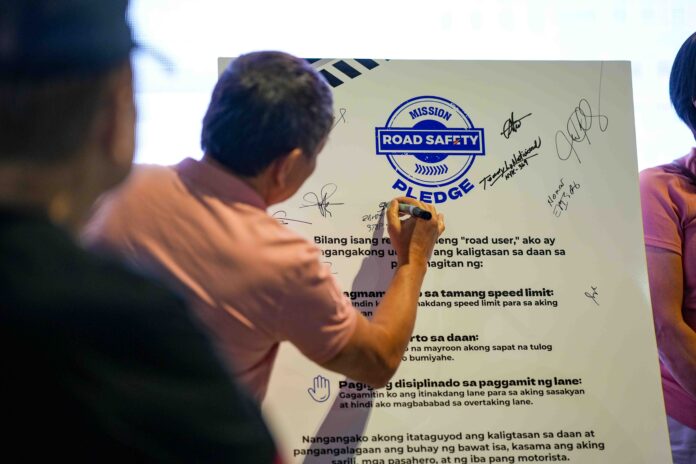
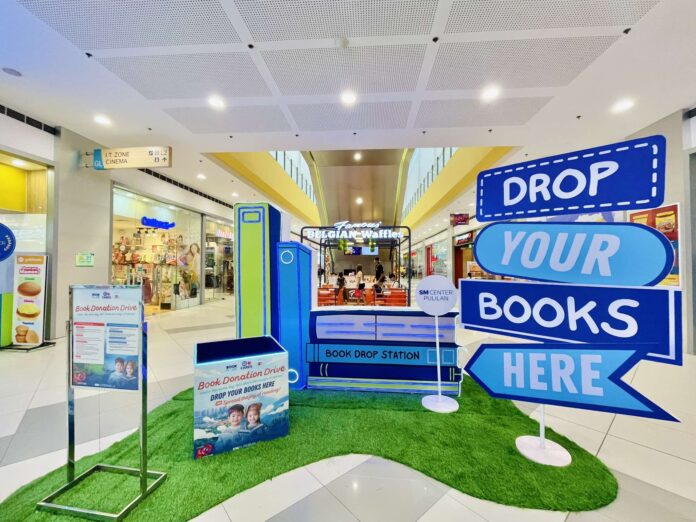
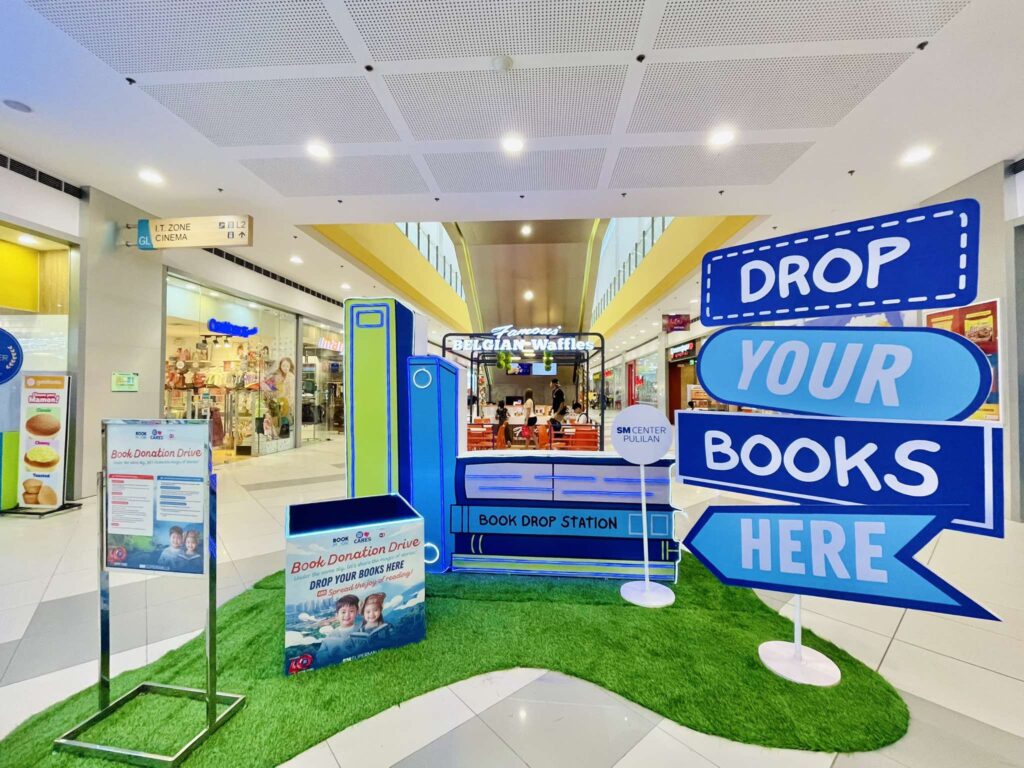

 Starting a new decade with a heartwarming chapter!
Starting a new decade with a heartwarming chapter! Be part of the story—read more about how you can get involved
Be part of the story—read more about how you can get involved